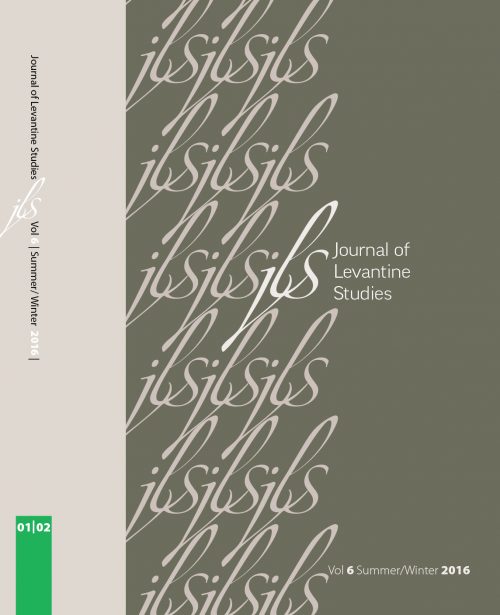-
Add to cartQuick view
The Dutch Occupation and Defense of Brazil: The Question of the Support of Jews and Conversos
Free!Documents preserved by the Portuguese Inquisition, travelers’ tales, contemporary chronicles, and writings left by local priests provide information concerning the Brazilian conversos. Taken together, the documents permit reconstruction of important aspects of Lusitanian American socioeconomic history. Still, these must be read and used with extreme caution, as the sources always reproduce what the inquisitors wanted to prove: the persistence of Jewish heresy. According to traditional historiographers (among others: Robert Southey, Ignacio Accioli de Cerqueira e Silva and Braz do Amaral, Antonio Domínguez Ortiz, Lucia García Proodian, and Eduardo D’Oliviera França), most of the cristãos-novos (New Christians) in northeastern Brazil had apparently helped the Dutch invaders. This assumption, however, has not been corroborated by the evidence, which shows that only some of the New Christians carried out acts of war on the side of the Dutch in the initial stages of the conquest, during which they served as guides, advisers, translators, and soldiers. It will be shown that the New Christians were not a homogeneous group, nor did they behave as a coherent unit at any time in Brazil’s colonial period. In the years the Dutch occupied parts of northeastern Brazil (1624–1625 and 1630–1654), there were Christians, both Old and New, who sympathized with the invaders. At the same time, many of the New Christians born in Brazil were already integrated into colonial life and society, contributing money, fighting against the Dutch, and taking part in Portugal’s defensive plans. Examples in this updated survey on the topic illustrate that those New and Old Christians who supported either the Dutch or the Portuguese side did so mainly for economic reasons rather than out of political or religious motivations.
Add to cartQuick view -
Add to cartQuick view
Manuel Fernandes Vila Real at the Portuguese Embassy in Paris, 1644-1649: New Documents and Insights
Free!During the inquisitorial trial that would lead to his execution as a Judaizer, Captain Manuel Fernandes Vila Real (1608–1652) detailed in a long hand-written petition the considerable services he had rendered toward Portugal’s independence as a member of its embassy in Paris during the years of 1641–1649. Vila Real ended his autobiography with the enumeration of his publications on political matters, mentioning an additional two dozen confidential memorandums that he had composed in France during his work at the embassy. The present article reports on the discovery of extensive fragments from these lost manuscripts in a miscellaneous collection of state papers kept by the Portuguese National Archives. Thirty unsigned drafts, totaling more than one hundred pages, can be attributed to Vila Real on the basis of their handwriting. These papers apparently belonged to the estate of Ambassador Dom Vasco Luís da Gama, Marquês de Niza (1612–1676), who used them in his official reports. Vila Real gave his superior, and thereby the Portuguese government, a detailed account and analysis of current European events, accounts of the Fronde uprising in Paris, and suggestions for improving Portugal’s war effort, trade laws, finance, and international image. Though few of these memorandums address the New Christian problem directly, the latter turns out to be inseparable from Vila Real’s diplomatic activity.
Add to cartQuick view -
Add to cartQuick view
Portuguese New Christians among the Local Elites in Seventeenth-Century Cartagena de Indias
Free!To show that the conversos’ ability to become an integral and influential part of local society did not depend on their inner, private religious and ethnic identities but rather on external factors, the present article analyzes the case of the New Christians in colonial Cartagena de Indias (in today’s Colombia) based on testimonies found in Inquisition archives. The peculiarity of Cartagena de Indias, in contrast to other important cities in the Hispanic colonies, relied on the fact that it was a small city with a relatively small Caucasian population, and its economic life depended almost exclusively on commercial activity. The thesis defended in this article argues that if commerce was central to life in Cartagena de Indias, and the Portuguese New Christians predominated both demographically and in the field of trade, clearly their influence on various aspects of local society had to be significant. The article presents specific examples that show the Portuguese impact in the city in different spheres of society, including the social, political, economic, and philanthropic.
Add to cartQuick view
- Home
- About JLS
- Issues
- Vol. 9 No. 1 | Summer 2019
- Vol 8 No 2 Winter 2018
- Vol. 8, No. 1: Summer 2018
- Vol. 7, No. 2: Winter 2017
- Vol. 7, 1: Summer 2017
- Vol. 6, Summer/Winter 2016
- Vol. 5, No. 2 Winter 2015
- Vol. 5, No. 1 Summer 2015
- Vol. 4, No. 2 Winter 2014
- Vol. 4, No. 1 Summer 2014
- Vol. 3, No. 2 Winter 2013
- Vol. 3, No. 1 Summer 2013
- Vol. 2, No. 2 Winter 2012
- Vol. 2, No. 1 Summer 2012
- Vol. 1, No. 2 Winter 2011
- Vol. 1, No. 1 Summer 2011
- Blog
- dock-uments
- Subscribe
- Submit
- Contact


